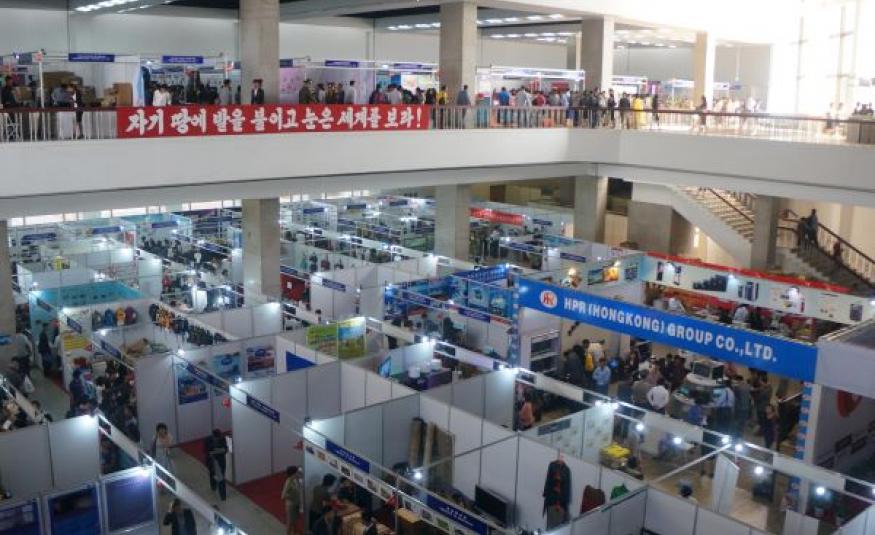Toby Heelis, CEO of events management platform Eventopedia explores the future of exhibition venues and how they can thrive in a post Covid-19 environment.
The last six months have been a turbulent time for the events and exhibitions industry and the future looks somewhat uncertain unless we see innovation or adaptation from organisers and venues. However, this is a great opportunity to improve and break the mould we are all so accustomed to in the industry and for those that grab the opportunity, it could pay dividends when the market recovers, they just need to consider ‘how’.
Exhibition venues of one type or another were there to aid with the emergency response to a global health crisis, but now we want to see them back to hosting great events. As someone that has managed event venues in the past, I have been thinking of what I would be looking at to make the event experience as safe for the delegates as possible but also as successful for the event planners and the venue operator. We need to keep producing profitable events and venues otherwise the industry will have even greater long-term challenges from this unique scenario.
There has been much written about the obvious government guidelines that hospitality venues should follow but these are the basics. Exhibition venues in the UK and worldwide will have more to think about than most conference venues owing to the static nature of exhibition stands and the extra logistics that are required to service the stands, exhibitors and delegates.
There has been much talk about the new types of events like hybrid, overflow, virtual and studio events. Hybrid will be interesting to see develop in the exhibition world as there are virtual platforms with exhibition stands incorporated to let the online delegate engage with the exhibitors. Making the most of these new opportunities with the potential for more international ‘stand visitors’ will be key for the organisers to welcome the international market. Exhibitors should be looking to link their content sessions to whatever virtual platform they use as many interested delegates might engage with just that segment of content and not have the time or inclination to attend in person.
Exhibition venues generally have more space around the site, so managing the flow of people will be easier than city centre conference facilities. People are less willing to use public transport so making provision for more private transport will be key, with improved taxi access, car parking where available and even bicycle or scooter parking will need to be thought out and considered.
On arrival, a holding area should ideally be outside under cover, which will help keep any social distancing measures in place as temperature checks are carried out. Once inside and whatever registration system is used, the flow of people will need to be managed rather better than my local supermarket. Putting arrows on the floor as a lame effort to organise a crowd of people will not be enough. Instead, providing marshals (without extortionate profit margins) that know the venue may be required rather than just leaving the event organiser to do it all themselves. Training the venue and organiser’s staff to a set venue standard should be considered to provide a safe environment for all visitors.
As we know by now, It is required to have deep cleaning but think about which products you use. There are many out there and helping the environment seems to have been put to one side as long as the venue is ‘Covid-19 Safe’. I would be looking towards the likes of Delphis Eco (Royal warrants and all) as an option but other eco-brands are available.
Possibly the biggest debate during lockdown was the effect on the catering of events, and exhibitions are no different. It seems sustainably packaged individual food options will be one option, but I think it’s safe to say the days of the free pour coffee machine might be numbered for a while.
Exhibition venues that are preparing for a return to a profitable business now will be the winners and getting your venue story ready and well-presented will be one of the harder challenges. All marketing takes investment in time and money and those willing to find those resources will prosper long term.
Helping event planners with their events has always been my focus whether in a venue or now as CEO of Eventopedia. This is why we have also invested in developing our EXPLORE virtual sales and marketing solution that has worked well for venues like ExCeL London, Farnborough Exhibition Centre and Wembley Stadium in the UK, and many international hotels. It allows your potential customers to experience your venue through the medium of HD film and tell the venue’s story whilst controlling the narrative. Going forwards there will be too much at stake for venues to just allow an events planner to stroll around your venue with minimal to zero context like many 360 tours out there. You need to control your narrative through whatever medium is used in order to allow the best chance for success in such competitive and turbulent times.
There will be trying times ahead of course, but a small shift in confidence, innovation and understanding of the new reality will allow people and businesses to get back to what they love and what keeps the world turning. This is an opportunity for many and will certainly shape the way exhibitions operate and how venues host events, but we should be excited to see new innovation and a rebuild of the industry we love.





